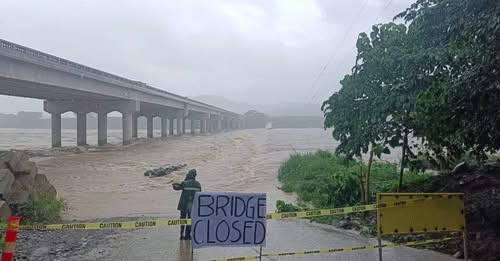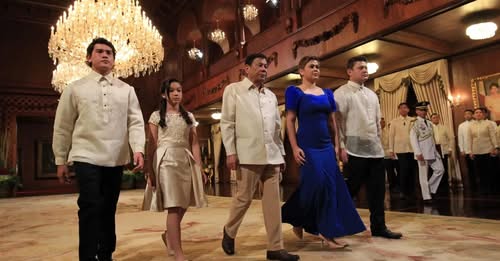As the Philippines marks its 127th Independence Day, it is both fitting and necessary to reflect on the enduring struggles and aspirations of our nation. Our forefathers fought bravely to free us from colonial domination, forging a path toward sovereignty, liberty, and the promise of a better future, a future blessed by freedom and democracy. Yet, as we celebrate this milestone, there remains an unsettling truth: amidst the pomp and pageantry, our country is grappling with pressing crises that threaten our very freedom, our rights, and our well-being.
It is impossible to ignore the stark contrast between the apparent happiness radiating from our current President, Ferdinand “Bongbong” Marcos Jr., and the tumultuous reality faced by ordinary Filipinos. While he appears unshakably upbeat—perhaps even excessively so—many citizens are distracted by the spectacle of political drama and optical illusions, notably the ongoing impeachment proceedings. This spectacle, orchestrated or not, seems to serve as a political and social smokescreen, diverting public attention from the deeper issues that demand equally urgent action and genuine accountability.
The impeachment process is a potent political tool. It captures headlines, fuels sensationalism, and engages the public’s emotional investment. But beyond the surface lies a troubling pattern: using high-profile political battles to divert attention from systemic problems. This “drama anthology,” as some critics call it, is reminiscent of past political skirmishes that have often served as smokescreens rather than catalysts for meaningful reform. While the nation is fixated on the fate of certain officials or political figures, critical issues remain unresolved. The 2025 national budget, for instance, is a hotly debated topic, with questions swirling about its allocation, transparency, and efficacy. Budget debates are not mere procedural hurdles; they are the backbone of governance, determining how resources are distributed to health, education, infrastructure, and social services. Yet, in the midst of political theatrics, these discussions often become overshadowed by sensationalized political stories that distract from the real economic and social priorities. Equally concerning is the legal quagmire surrounding the arrest of former President Rodrigo Duterte (PRRD). The ongoing case before the Supreme Court raises fundamental questions about legality, justice, and accountability. If the judicial process is to uphold the rule of law, it must be allowed to proceed without undue interference or distraction. But when political narratives dominate public discourse, the pursuit of justice becomes muddled, and the rule of law is undermined.
Beyond the political theater, the Philippines faces tangible, pressing crises that threaten the very fabric of our society. Flooding remains one of the most persistent and devastating natural disasters, especially during the rainy season. Despite repeated promises and billions allocated to flood control programs, many communities continue to suffer from flooding every year. Infrastructure projects meant to mitigate these calamities are often delayed, underfunded, or poorly implemented, leaving vulnerable populations exposed to danger and hardship. The failure to effectively address these issue not only endangers public safety but also erodes public trust. And let us not forget the controversies surrounding the legality of the arrest of PRRD. The case before the Supreme Court holds significant implications for the rule of law and executive accountability. If such high-profile cases are politicized or mishandled, the consequences could undermine the independence of the judiciary and weaken our democratic institutions. In this complex socio-political landscape, the Filipino people must remain vigilant. Democracy is not a passive state; it requires active engagement, critical thinking, and demands for transparency and accountability. We must scrutinize not only the outcomes of high-profile political processes but also the policies and programs that directly impact our lives.
Public accountability should extend beyond impeachment trials. It must encompass how we manage our environment, how we enforce laws, and how we safeguard the rights of every Filipino. The government’s failure to address flooding or its handling of drug-related issues should be subject to public scrutiny, debate, and demand for concrete results.
Moreover, our collective vigilance must be rooted in a clear understanding of our rights—our right to life, liberty, and property. These fundamental rights are the pillars of our democracy, and they should never be sacrificed or disregarded for political convenience or populist appeals.
As we celebrate our independence, let us remember the sacrifices of those who fought to free us from oppression. Their struggle was not merely against colonial rulers but also against injustice, inequality, and tyranny within our own borders. Today, we are called to uphold their legacy by defending what they fought for—our sovereignty, our rights, and our dignity. This Independence Day should serve as a reminder that freedom is not just a historical achievement but an ongoing responsibility. It calls us to be vigilant against threats to our democracy, to demand accountability from our leaders, and to participate actively in shaping our future.
The road ahead is challenging, but it is also filled with hope and faith. The Philippines has always been a resilient nation, capable of overcoming adversity when its people stand united. We must not allow ourselves to be distracted by political theatrics or superficial happiness while fundamental issues remain unaddressed. Let us cherish the sacrifices of our heroes by ensuring that their legacy is not squandered. Let us demand transparency, justice, and accountability from our leaders. And let us continue to fight for a Philippines where every Filipino can enjoy the fruits of freedom—free from natural disasters, corruption, injustice, and violence.
This Independence Day, as we celebrate our hard-won freedom, let us reaffirm our commitment to building a nation that truly lives up to the ideals of liberty, justice, and equality. Only then can we honor the sacrifices of the past and secure a brighter, more just future for all Filipinos.




